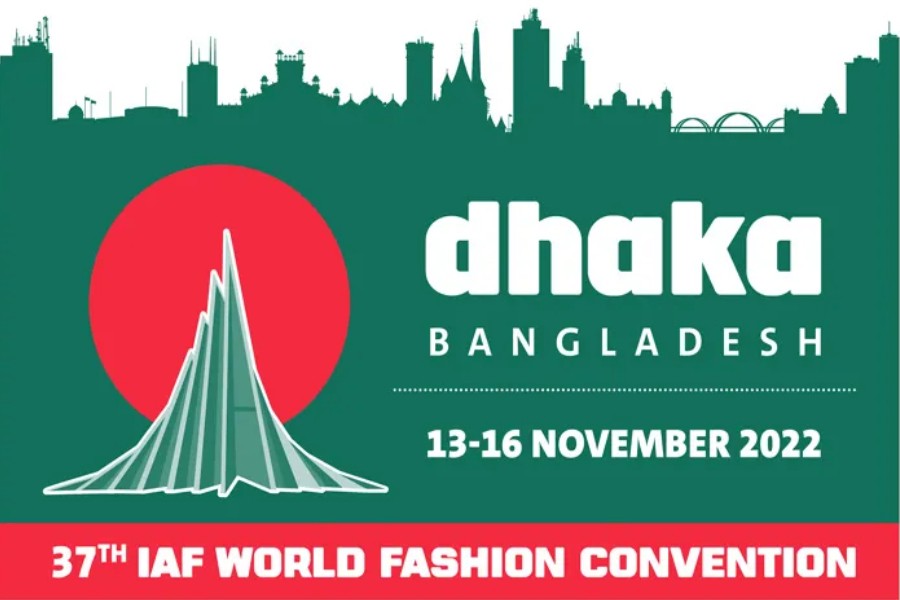True and effective collaboration between apparel buyers and manufacturers can address the major challenges that the global clothing industry is now facing and also bring successful transformation in its supply chain.
International Apparel Federation (IAF) President Cem Atlan said this in the introductory session of its 37th World Fashion Convention 2022 in Dhaka on Monday.
He noted that the garment manufacturers, who can play a crucial role in successful industry transformation, often cannot make required investments in this regard due to their low margin.
They feel the squeeze from higher costs and lower demands, while new rounds of order cancellations, full warehouses, and big discounts show ineffectiveness of the global textile and clothing industry.
"Now more than ever, we realise that we need to come together as an industry to solve our problems. The major challenges of our industry can be realistically met today, only when there is a true collaboration between buyers and manufacturers," he also said.
The convention, first of its kind in Dhaka, is being held simultaneously as part of the Made in Bangladesh Week 2022.
The weeklong mega event is jointly organised by the Bangladesh Garment Manufacturers and Exporters Association (BGMEA) and the Bangladesh Apparel Exchange (BAE). It will continue until Friday to brand and showcase developments of the local ready-made garment (RMG) industry.
Bangladesh Knitwear Manufacturers and Exporters Association (BKMEA) Vice President Fazlee Shamim Ehsan also spoke on the occasion.
Citing the example of CO2 emission, Mr Atlan said investment is required in lower energy use machines and processes by manufacturers. They also need investment for building more flexible supply chains that can deliver right products at right time.
"However, the low margin - made in the supply chains - often does not enable the manufacturers to make these investments."
Instead of collaboration, it is often seen that the necessary investments are pushed into the supply chain, and that flexibility is created by letting supply chains act as crumbling zones, catching the blows of uncertain demands.
"This creates a situation where retail promises improvements, pushes the costs upstream, and ends up with no improvement at all to show to end consumers and legislators," the IAF chief added.
Speaking at another session titled 'creating better supply chains together', Roger Hubert, Managing Director of the RMG Sustainability Council (RSC), stressed the need to change the way of doing business.
After expiry of Accord, RSC was formed in June 2020 to take over activities of the western retailers' platform to further continue the safety-related works in local garment industry.
The collaboration between brands and manufacturers along with trade unions or workers' representatives has to be functional, he noted.
He, however, said regulatory pressure or process is needed to help bring required transformation and change in the mindset, and only self regulation 'would not and could not' bring the transformation.
Abdullah Al Maher, Group Chief Executive Officer and Head of Business at Asrotex Group, stressed true partnership - putting light on current situation of the global supply chain.
The supply chain situation has been immense and harder than the Covid pandemic period, and they are being requested to delay shipments, accommodate changes, and so on.
He also emphasised making required information and data available to the suppliers.
Before the session, Eurotex Director General Dirk Vantyghem made a presentation on the impact of Europe's Green Deal.
The European Commission (EC) adopted a set of proposals to make the EU's climate, energy, transport and taxation policies fit for reducing net greenhouse gas emissions by at least 55 per cent by 2030, compared to the 1990-level.
The Green Deal aims to make use of a carbon border adjustment mechanism to internalise the cost of CO2 in both domestically produced and imported goods.
BGMEA President Faruque Hassain, during his speech in the opening session, said in the past decade, the industry has undergone a massive transformation to ensure workplace safety, workers' well-being, and sustainability.
Bangladesh is now the role model of industrial safety and environmental sustainability to the world. The country has the highest 177 number of green factories, certified by USGBC, of which 58 are platinum-rated.
Local factories have taken many initiatives to make their manufacturing process
environment-friendly. The manufacturers have already incorporated the sustainable business practice into their value chain.
But still there are some scopes that can be enhanced, particularly in the areas of waste reduction in manufacturing without losing productivity, decreasing water use and carbon emission in production, meeting occupational health and safety, increasing transparency and traceability, and managing quality, he noted.


